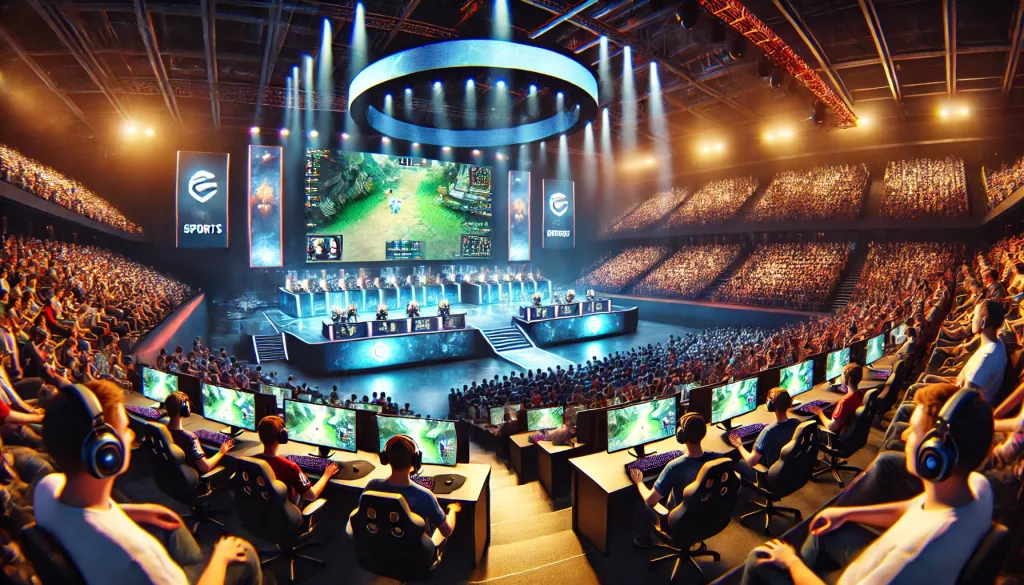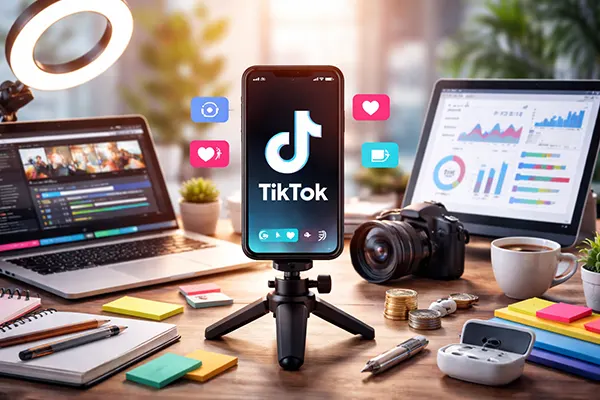
Earning on Online Games in 2025: From Streaming to Esports
In 2025, the gaming industry is no longer just about entertainment. It has evolved into a multi-billion-dollar ecosystem where players can turn their passion into a profession. Whether through streaming gameplay, competing in esports tournaments, or trading virtual items, the opportunities for earning have expanded significantly. This article takes a closer look at the primary ways gamers can capitalise on their skills and interests this year, offering practical insights and tips to get started.
Streaming as the Foundation of Monetisation
Streaming has cemented its place as one of the most effective methods for gamers to earn a steady income. The global reach of platforms like Twitch, YouTube Gaming, and Facebook Gaming allows streamers to showcase their content to millions of viewers. Whether it’s playing popular titles, exploring indie games, or hosting casual gaming sessions, streamers can tap into diverse audiences.
The financial potential of streaming goes beyond simple gameplay. Creators often diversify their revenue streams through ad partnerships, affiliate marketing, and premium memberships. Merchandise sales, such as branded clothing or customised accessories, further enhance earning possibilities. For top-tier streamers, signing exclusive contracts with platforms has become a lucrative trend, ensuring consistent income and audience engagement.
However, streaming success requires more than just technical expertise. The ability to engage with audiences in real-time, maintain a charismatic on-screen presence, and adapt to viewer preferences plays a significant role in building a loyal fan base. Streamers who regularly innovate their content—such as hosting themed streams, collaborating with other creators, or conducting giveaways—often see better audience retention and growth.
How to Start a Career as a Streamer
For those venturing into streaming, the first step is assembling the right tools. A high-performance computer capable of handling intensive games and streaming software is non-negotiable. Similarly, a quality microphone ensures clear communication, while a good webcam enhances visual appeal.
Consistency is key in streaming. Establishing a regular streaming schedule not only helps in building an audience but also signals dedication and professionalism. Streamers should also invest in understanding their analytics to identify what content resonates best with their viewers. Experimenting with new games, hosting Q&A sessions, or even inviting guest appearances can keep the content fresh and exciting.
Additionally, building a presence on social media platforms can help in expanding reach. Sharing highlights, posting behind-the-scenes moments, or interacting with followers outside of streaming hours creates a stronger connection with the audience. This multi-platform strategy can significantly boost visibility and attract potential sponsors.
Esports: Professional Tournaments
Esports, or competitive gaming, has grown into a global phenomenon. In 2025, the industry continues to attract massive investments, with tournaments offering prize pools that rival traditional sports. Popular titles like League of Legends, Dota 2, and Valorant remain at the forefront of this revolution, while newer games are quickly gaining traction in the competitive scene.
The esports industry isn’t limited to players alone. Coaches, analysts, commentators, and event organisers also contribute to the ecosystem, creating numerous career opportunities. With esports now being recognised as an official discipline in some educational institutions, aspiring players can even pursue formal training to hone their skills.
In addition to live events, online streaming of tournaments brings esports to millions of viewers worldwide. Platforms like YouTube and Twitch have become essential hubs for fans to follow their favourite teams and players, further amplifying the industry’s reach and profitability. Sponsorships, endorsements, and media rights have also added to the financial appeal of esports.
How to Enter the World of Esports
For beginners looking to enter the competitive gaming scene, it’s important to focus on one game and dedicate significant time to mastering its mechanics. Watching professional matches, analysing strategies, and practicing with skilled players are essential steps to improving gameplay.
Joining amateur leagues or local tournaments can help players gain experience and visibility. Many professional players were discovered through grassroots competitions, where they showcased their talents and dedication. Networking within the gaming community is equally vital—connecting with peers, mentors, and team managers can open doors to larger opportunities.
Moreover, aspiring players should consider creating a personal brand. Maintaining an active online presence, streaming gameplay, and engaging with fans can attract sponsorships and team invitations. With the right mix of skill, strategy, and persistence, entering the world of esports can be a rewarding journey.

Selling In-Game Items
The sale of in-game items has become a significant income stream for gamers in 2025. From exclusive skins and weapons to virtual currencies and accounts, the market for digital goods is thriving. The value of these items often depends on their rarity, demand, and association with popular games.
Platforms like Steam, Epic Games Store, and specialised trading websites have made it easier than ever for gamers to buy and sell virtual goods securely. These marketplaces provide tools for evaluating item prices, ensuring fair trades, and minimising the risk of fraud. Additionally, some games have integrated their own marketplaces, streamlining the trading process.
Beyond direct sales, gamers can also profit by flipping items—buying undervalued goods and reselling them at higher prices. Understanding market trends and timing purchases strategically are crucial skills for success in this area. Popular titles like Fortnite and Counter-Strike: Global Offensive have particularly vibrant trading ecosystems.
Risks and Opportunities
Despite its potential, trading in-game items carries certain risks. Scammers often target inexperienced traders, exploiting loopholes or using fake platforms to steal goods. To avoid falling victim, it’s advisable to conduct transactions through verified marketplaces and avoid sharing personal details.
On the other hand, the opportunities in this market are immense. Rare items, such as limited-edition skins or event-exclusive collectibles, can fetch substantial sums. Gamers who stay informed about upcoming game updates, market dynamics, and community demand can maximise their earnings. With diligence and strategy, selling in-game items can become a lucrative side hustle or even a full-time career.



